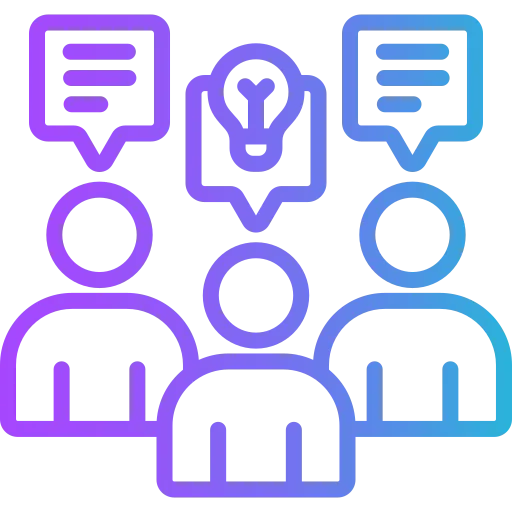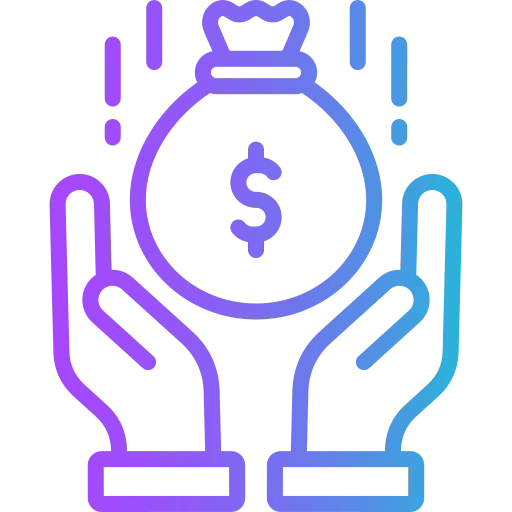S.T.A.R
SISTERS TOGETHER ACHIEVING RECOVERY
WHAT WE OFFER
Empower, Heal, and Thrive: Programs That Light Your Path to Recovery
At S.T.A.R., we understand that every woman’s journey is unique, and recovery is about more than overcoming challenges—it’s about rediscovering your strength, building connections, and embracing a brighter future. That’s why we offer a range of thoughtfully designed programs, events, and resources to support your healing, growth, and empowerment. Whether you’re seeking tools for personal transformation, opportunities to connect with others, or simply a space to be heard and understood, S.T.A.R. is here to guide you every step of the way.

UNDERSTANDING RECOVERY
A Lifelong Journey
Recovery is a personal and transformative process where individuals regain control of their health, wellness, and future. It is unique to each person, shaped by their experiences, challenges, and strengths.
Key Aspects of Recovery
Personal and Unique: No two recovery journeys are the same.
Ongoing Growth: Recovery is not a single event but a continuous journey of healing and self-discovery.
Empowerment: Both individual and group recovery focus on building confidence and reclaiming life.
Strength-Based Approach: Recovery highlights personal strengths and abilities rather than limitations.
Types of Recovery
Personal Recovery: Overcoming trauma, grief, or loss.
Mental Health Recovery: Managing mental health challenges while living a full positive life.
Addiction Recovery: Breaking free from substance use and rebuilding a stable, fulfilling life.
Physical Recovery: Healing from illness or injury and regaining physical function.

RECOVERY CAPITAL
The Building Blocks of Recovery
Recovery Capital refers to the resources—both internal and external—that individuals rely on to maintain long-term wellness. Think of it as a personal bank account: the more deposits you make, the stronger your foundation for recovery becomes.
Recovery Capital refers to the internal and external resources that individuals can draw upon to initiate, maintain and sustain long term Wellness.
Recovery Capital provides women with the working tools, resources and supports to make informed choice in their life's. To understand Recovery Capital, lets think of banking either in person or online.
Key Components of Recovery Capital
Personal Capital: Inner strengths like resilience, coping skills, and hope.
Social Capital: Supportive relationships with family, friends, and mentors.
Human Capital: Education, employment skills, and vocational training.
Cultural Capital: Values, beliefs, and creative expressions that shape identity.
Financial Capital: Economic stability, employment, and access to healthcare.
Community Capital: Available resources like legal, mental health and housing services and assistance.
Challenges That Reduce Recovery Capital
Stressful life events (trauma, financial hardship).
Social isolation and lack of support.
Mental health struggles such as depression and anxiety.
Substance use and legal challenges.
Ways to Build Recovery Capital
Recognize personal strengths and develop coping skills.
Strengthen social connections and engage in meaningful activities.
Pursue education, vocational training, and personal development.
Prioritize physical and mental well-being through healthy habits.
Access community resources for legal, financial, and health support.

BIAS IN RECOVERY
Breaking the Cycle of Misconception
Bias refers to thoughts or actions that unfairly favor or discriminate against individuals based on superficial or inaccurate perceptions. When left unaddressed, bias can create significant barriers for women in recovery.
Bias is any thought or action that discriminates or disproportionately favors one person or group of people over another based on superficial or inaccurate perceptions of the person or group..
Bias can significantly impact, hinder and strengthen a woman's Recovery journey. With the recognition of Bias and what's next, Being Passive or Engage In Corrective Action.
Where Bias Manifests
Trauma History: Many women in recovery have experienced violence or abuse, yet programs often fail to address these unique needs.
Caregiving Responsibilities: Childcare and eldercare often fall on women, limiting their access to recovery programs.
Hormonal Fluctuations: Biological factors can impact recovery experiences, but they are often overlooked in treatment plans.
Employment and Housing Discrimination: Women in recovery may struggle to find stable jobs and housing due to societal biases.
Internalized Stigma: Many women absorb societal negativity, leading to low self-esteem and self-doubt.
Addressing Bias in Recovery
Implement trauma-informed care in all wellness programs.
Create gender-specific recovery programs tailored to women's unique needs.
Ensure access to affordable childcare to remove participation barriers.
Provide support for caregivers balancing recovery with family responsibilities.
Educate communities to promote inclusive, stigma-free environments.

STIGMA IN RECOVERY
The Invisible Barrier to Recovery
Stigma is one of the biggest obstacles in a woman's recovery journey, shaping how she is perceived, treated, and supported by society.
STIGMA is a mark of disgrace, disapproval, negative beliefs and stereotypes that sets a person apart from others. These perceptions lead to prejudice and discrimination, limiting opportunities and overall well being for those affected.
It involves negative attitudes, beliefs, and stereotypes associated with a particular trait, circumstance or health condition.
It's important to remember that stigma is a complex issue with deep-rooted social and cultural origins. Addressing stigma requires a multi-faceted approach that involves individual, community, and societal-level changes. There is a racial, economic, political, cultural history associated with Stigma.
What is Stigma?
Stigma refers to negative and unfair beliefs about certain groups or conditions, such as mental health issues or addiction recovery. These biases lead to prejudice, discrimination, and reduced opportunities.
Types of Stigma
Public Stigma: Society’s collective negative perceptions of individuals in recovery.
Internalized Stigma: When women absorb these negative beliefs, leading to shame and self-doubt.
Hormonal Fluctuations: Biological factors can impact recovery experiences, but they are often overlooked in treatment plans.
Stigma-by-Association: Prejudice faced by those connected to individuals in recovery, such as family members or friends.
Breaking the Stigma
Foster open conversations about recovery to normalize it.
Challenge societal narratives that reinforce negative stereotypes.
Educate individuals, communities, and workplaces to promote inclusivity.
Empower women in recovery to reclaim their identities beyond stigma.
Creating a Stigma-Free Future: The Role of Education and Awareness
One of the most effective ways to dismantle stigma and bias is through education and advocacy. When communities understand the realities of recovery, they can become allies instead of obstacles.
How Education Helps
Encourages positive and realistic portrayals of women in recovery.
Increases access to healthcare, employment, housing, and support networks.
Reduces discrimination and judgment by replacing myths with facts.
Helps individuals in recovery rebuild confidence and self-worth.
How We Can Take Action
Host educational workshops to spread awareness.
Encourage media representation that showcases real recovery stories.
Provide community resources for families, employers, and educators.
Advocate for policy changes that protect the rights of women in recovery.
OUR TESTIMONIALS
Voices of Strength and Hope
Real Stories from Women Who Found Empowerment and Transformation Through S.T.A.R.
Faustyna K.

Time went quick, had fun. Learned a lot.
Latisha M.

I enjoyed the entire event.
Dawn P.

There is no need for improvement actually. I absolutely loved this and would recommend it and would come again.
Diane P.

The empowerment of women. Helping and learn new and better ways of coping with reality.
Alberta R.

I learned two things I did not know today which is depression is linked to some addiction and mental illness & also the meaning of Stigma.
Melissa B.

Being with other women in recovery.
Helen

Meeting New people.
S.T.A.R
SISTERS TOGETHER ACHIEVING RECOVERY
© 2025 - All Rights Reserved -
celine@sisterstogether.net
(929) 361-2744